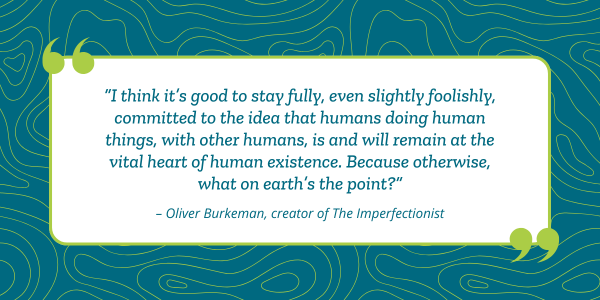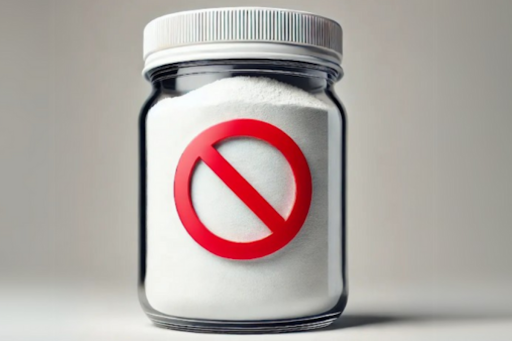|
|
|
|
|
|
|
Welcome to Your Daily Dot where Dot will share tips, advice, and stories on how we can make our world better. |
|
|
|
|
|
If you purchase anything via one of our links, including from Amazon, we may earn a small commission.
All Dear Dot illustrations by Elissa Turnbull. |
|
|
 |
|
|
|
Dear Reader,
It’s been almost impossible to avoid debate about artificial intelligence. Just this week, Middle Dot Child (a recent university graduate who’s been tutoring high schoolers) reported that some of his pupils are unable to explain how they got the math answers they’re presenting (“they’re using AI,” he concluded). One of Bluedot’s editors, tasked with assigning and editing the fabulous stories you’ll find on our site, commented on a noticeable uptick in story pitches created by AI. And a friend of Dot’s, a children’s author evaluating submissions of picture book stories for a contest, noted a “common banality” in this year’s entries that she suspects is due to their authors using AI.
Steering clear of hysteria, there’s nonetheless plenty to give one pause about just how this technology will transform our world. And that’s without considering the environmental cost, which, a recent study indicates, goes higher the more accuracy one wants with prompts, since the more research a program has to do, the more power it consumes.
Dot doesn’t deny predictions that use of AI is leading to better healthcare outcomes, better analysis of climate solutions, greater insights into conservation, and much more. There are many examples of creative and life-affirming uses of artificial intelligence that are making our world better. But experts are warning that AI will also drive greater social isolation, and encouraging us to build a bulwark against that. (After all, we know that knowing your neighbor is an important climate solution.) As author and journalist Oliver Burkeman put it in his newsletter The Imperfectionist, “it feels like our own aliveness is what’s at stake when we’re urged to get better at prompting LLMs to provide the most useful responses. … It makes you wonder if Wendell Berry had it right when he wrote: ‘It is easy for me to imagine that the next great division of the world will be between people who wish to live as creatures and people who wish to live as machines.’”
The Atlantic’s Derek Thompson calls this our “antisocial century” and told a podcaster that “this AI wave that is coming … is going to deform social relations in ways we’re not going to understand until it’s already happening.”
Dot, for one, opts to live as a creature, among and connected to other creatures, fully and foolishly “committed to the idea that humans doing human things, with other humans, is and will remain at the vital heart of human existence. Because otherwise what on earth’s the point?”
Authentically,
Dot
|
|
|
|
|
|
Paid Advertisement with Option Pit |
Make Profits from Market Pullbacks—Even When the Market is in Chaos
|
 |
|
The market experiences 10% pullbacks regularly, and for many investors, it’s a stressful time. But did you know that you can actually make money during these market corrections? Mark Sebastian shares his powerful strategies for thriving in a volatile market with his Weekly Profit Cycles system, designed to help you navigate market uncertainty and turn fear into a tool for consistent profits.
Instead of watching your portfolio take a hit, you can learn to leverage market pullbacks for potential gains. Bluedot Living readers can use this exclusive link to discover Mark’s proven strategies. Don’t wait for the market to turn in your favor—take control now.
|
| Learn How to Profit from Market Pullbacks Today |
|
|
|
|
|
|
|
Paid Advertisement with NativePath |
What Collagen Companies Don't Want Seniors to Know
|
 |
|
Why do some people see amazing results with collagen while others notice nothing at all? The answer isn't in your age or biology – it's hidden in the supplement label. Most consumers over 50 are missing 5 crucial signs that reveal whether their collagen supplement is the real deal or just expensive protein powder. Before you spend another dollar on collagen, discover what leading researchers say you must look for. This could be the most important label-reading lesson you'll ever get.
|
| Learn More |
|
|
|
|
|
|
|
|
|
|
|
|
|
|
|
|
|
|